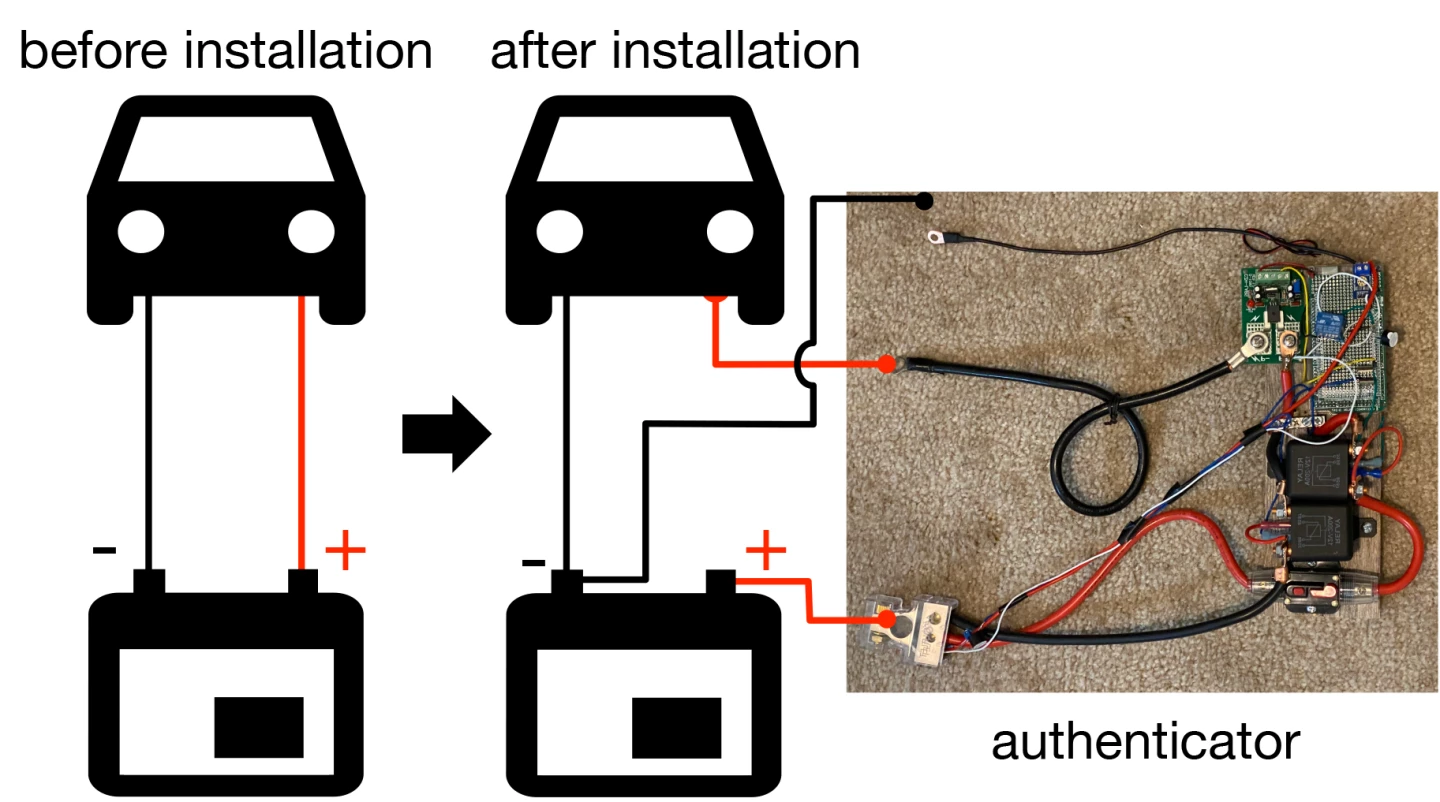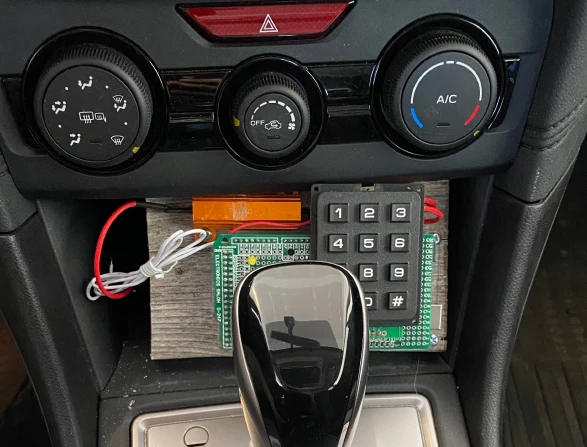With US car thefts up 25.1% since 2019, it's clear that high-tech key fob immobilizers aren't cutting the mustard. But this might: UMich researchers have created a charmingly low-tech anti-theft device that turns the whole car into a security keypad.
Keyless entry and ignition are a brilliant step up in convenience from the old "stick key in hole and turn" method of starting cars, but thieves and hackers with a bit of know-how and some specialist gear are finding late-model keyless cars quick and easy to break into and steal. Between this kind of thing and Tik Tok car theft challenges, criminals are having a field day in the post-COVID era.
A team at the University of Michigan has come up with a fun solution that doesn't use wireless signals at all. The "Battery Sleuth," as they've called it, sits between the car's battery and its electrical system, and measures fluctuations in voltage, looking for a specific set of voltage changes that act as a secret handshake of sorts between driver and car. Only when this handshake is complete will the device let the full power of the battery through to fire up the starter motor.

You can create these voltage handshakes using a keypad or fingerprint reader that plugs into your cigarette lighter socket – but frankly, that looks janky as hell, and why would you?
Much more fun is the fact that every button and switch in your car creates its own specific voltage fluctuation when you press it, meaning that your car's entire electrical system can be used as a keypad to unlock the ignition. Two taps on the brake pedal, one press on the rear left window up button, a flick on the wiper stick and a poke at the demister button, and you're away.
The only way to break into such a system would be to plumb a device into the car's electrics, read the voltage signature, and replicate it. That's not impossible, but it sure requires some work and some patience. And hey, if car thieves were good at working patiently, well, maybe they'd be able to afford their own cars.
The team's prototype was tested with eight vehicles in a field study in 2022, and was found to be "more than 99.9% effective at detecting and preventing illegitimate activity without interfering with normal vehicle operation."

“The idea of measuring fluctuations in a car’s electrical system seems simple, but designing one device that can do it accurately on thousands of different vehicle models in varying environmental conditions gets quite complicated,” said Liang He, assistant professor of computer science and engineering at the University of Colorado, Denver and a researcher on the project. “We’re working to design a system that’s smart enough to measure the parameters of the vehicle it’s installed on and then customize itself to work effectively on that vehicle.”
The system is being designed to include alarms that'll activate if the Battery Sleuth itself is tampered with, and a feature that'll shut down the car altogether if it detects an unauthorized power source, which might indicate a thief has tried hooking up another battery.
The research team has raised enough cash to develop a "commercially viable prototype" that could be packaged as a retrofit to existing cars, or as something that OEMs could fit at the factory. At this point it's effective as an immobilizer, but the team is looking into how it might be expanded to include vehicle entry.
Questions remain: will it work if, for example, you blow an indicator bulb and the indicator is part of your handshake signal? But either way, it's a fun idea.
Check out a video below.
Source: University of Michigan






